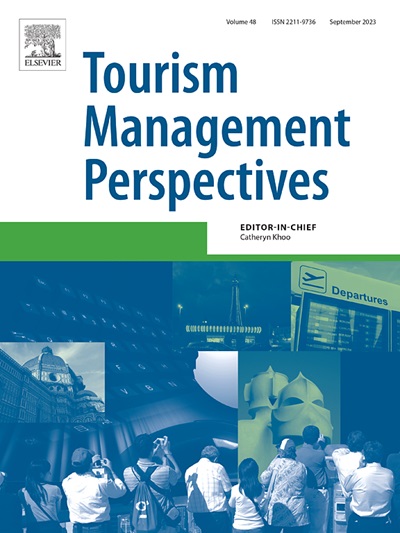越是始终如一,就越是相爱?服务机器人与酒店品牌个性一致性对品牌喜爱的影响研究
IF 6.9
2区 管理学
Q1 HOSPITALITY, LEISURE, SPORT & TOURISM
引用次数: 0
摘要
服务机器人在酒店业的应用规模不断扩大。现有的研究更多地集中在机器人技术对个人的心理、认知和行为的影响上,而对其对企业品牌的影响的探索相对较少。本文通过场景实验和对中国顾客的调查,探讨服务机器人与酒店品牌个性的一致性对品牌喜爱度的影响。研究结果表明:(1)服务机器人与酒店品牌个性的一致性对品牌喜爱度有影响。与低一致性相比,服务机器人与品牌个性的高一致性可以导致顾客对品牌的喜爱。(2)客户信任在上述关系中起中介作用。(3)互动质量正向调节一致性对顾客信任和品牌爱的影响。这些结果不仅丰富了我们对机器人品牌一致性如何在酒店业塑造客户品牌动态的理解,而且为酒店经理提供了可操作的见解,指导他们战略性地将服务机器人的部署与他们的品牌个性相结合,以培养更深入、更有弹性的客户品牌关系。本文章由计算机程序翻译,如有差异,请以英文原文为准。
The more consistent, the more in love? Research on the impact of service robot and hotel brand personality congruence on brand love
The application scale of service robots in the hospitality industry is continuously expanding. Existing research focused more on the psychological, cognitive, and behavioral impacts of robotic technology on individuals, with relatively insufficient exploration of its impact on corporate branding. This paper uses scenario experiments and surveys on Chinese customers to explore the impact of the congruence between service robots and hotel brand personality on brand love. The results show: (1) the congruence between service robots and hotel brand personality has an impact on brand love. Compared to low congruence, high congruence between service robots and brand personality can lead to stronger brand love among customers. (2) Customer trust plays a mediating role in the above relationship. (3) Interaction quality positively moderates the impact of congruence on customer trust and brand love. These results not only enrich our understanding of how robot-brand congruence shapes customer-brand dynamics within the hospitality sector but also yield actionable insights for hotel managers, guiding them to strategically align service robot deployment with their brand personality to foster deeper, more resilient customer-brand relationships.
求助全文
通过发布文献求助,成功后即可免费获取论文全文。
去求助
来源期刊

Tourism Management Perspectives
Multiple-
CiteScore
15.60
自引率
3.40%
发文量
99
审稿时长
59 days
期刊介绍:
Tourism Management Perspectives is an interdisciplinary journal that focuses on the planning and management of travel and tourism. It covers topics such as tourist experiences, their consequences for communities, economies, and environments, the creation of image, the shaping of tourist experiences and perceptions, and the management of tourist organizations and destinations. The journal's editorial board consists of experienced international professionals and it shares the board with Tourism Management. The journal covers socio-cultural, technological, planning, and policy aspects of international, national, and regional tourism, as well as specific management studies. It encourages papers that introduce new research methods and critique existing ones in the context of tourism research. The journal publishes empirical research articles and high-quality review articles on important topics and emerging themes that enhance the theoretical and conceptual understanding of key areas within travel and tourism management.
 求助内容:
求助内容: 应助结果提醒方式:
应助结果提醒方式:


